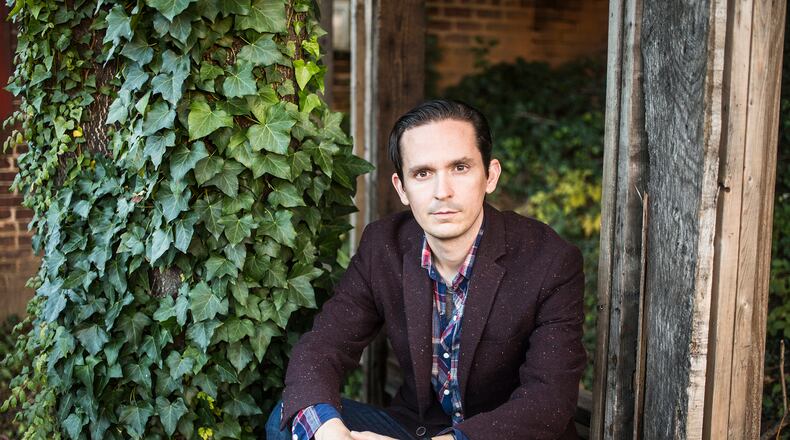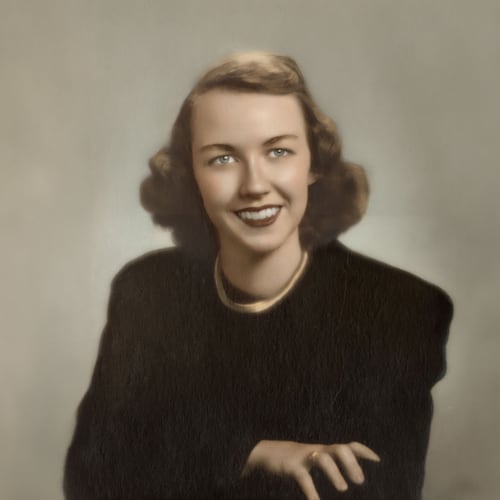“Titles can be so hard,” says Decatur author Thomas Mullen. His newest novel, “Midnight Atlanta,” is the third entry in his “Darktown” series of crime novels set in the Georgia capitol during the Jim Crow era.
The series began with his 2016 novel “Darktown” that dramatized the tensions that occurred when the Atlanta Police Department hired its first eight black officers in 1948. “Lightning Men” followed the next year and again used a crime story as a lens to focus on Atlanta racism and the struggle for civil rights in 1950.
Mullen rejected three potential titles while writing and editing the new book before choosing one. “I liked ‘Midnight Atlanta’ for the nocturnal/crime vibe, but also because midnight, while dark, is the start of a new day. I thought that went well with the book’s setting in 1956, when things look bad, but the Montgomery Bus Boycott has just begun, ushering in a new era,” Mullen says.
Since Mullen and his family moved to Decatur in 2008, he’s become something of a hard-boiled historian of the city’s crime and law enforcement issues on both sides of the color line. “Midnight Atlanta,” which publishes Aug. 24, sends his characters in new directions while marking a turning point for the acclaimed series.
When researching the first novel, Mullen learned about the 1938 murder of the publisher of the Atlanta Daily World, the city’s major black newspaper. He put the detail aside for later.
Credit: handout
Credit: handout
“I was intrigued by the idea of including it in a book that explored both the role of the black press in the early civil rights movement and the inevitable tensions in the relationships between police and the press.”
“Midnight Atlanta” begins with the murder of the editor of the fictional Atlanta Daily Times, but Mullen emphasizes that the 1938 case has no similarities to the novel’s central mystery, which involves FBI agents and communist activists, while the battle for desegregation unfolds in the background.
The series’ protagonists include World War II veteran and police officer Luther Boggs and his former partner-turned-reporter Tommy Smith, who investigate the editor’s murder in their respective roles as cop and journalist. The “Darktown” books excel at tracking the charged circumstances of black officers bound to enforce the laws but prohibited from arresting white people.
At one point, Smith reflects on the contradictions of being a Black cop in Atlanta, a racially progressive city by the flawed standards of 1950s Dixie: “Be the kind of good cop the mayor supposedly wanted him to be, but also play along with the second-class status the state’s Jim Crow laws forced him into. He’d walked away from that job, yet the tightrope still stretched taut beneath his feet.”
The previous books had a co-protagonist in white detective Denny Rakestraw, who’s conspicuously absent from “Midnight Atlanta.” Mullen shifted focus because, in part, “I didn’t want to have a white savior character.” Having Rakestraw withdraw from fighting for the black officers’ cause at the end of “Lightning Men” reflects the limitations of white allyship in the 1950s. “I wanted that disappointing element when Rake walks ‘off-camera,’” Mullen says.
Instead, Mullen boosts the role of McGinnis, the Black officers’ white sergeant who is neither trusted by the patrolmen who report to him nor respected by his white colleagues.
Present-day politics and the ongoing friction between police and the Black community has subtly influenced his series, Mullen says. “The ongoing police violence against African Americans and the protests to that and the backlash to the protests all inform what I think and how I deal with my characters, and what I want to contribute as an artist.
“Each work of historical fiction is a reflection of the time in which it was created, and I think I’m learning and growing like everyone else,” he says. “The temptation to write happier endings or put positive spins on certain situations might have been stronger had these last five years been different, at the very least.”
Last year, a different set of current events brought new attention to his first book, “The Last Town on Earth,” an historical novel set during the Spanish flu epidemic of 1918. When some of “Darktown’s” European publishers found out about it, they saw a new market for the 2006 book. It has been brought back into print in Germany and is soon to be published in France.
He appreciates that “The Last Town on Earth” has found new fans interested in reading about global pandemics during COVID-19. “I’ll be honest, I don’t know if I’d want to read that book now, but I tip my hat to the people who do. I’m glad it brings some people some comfort. It’s strange, but I’m glad.”
Mullen’s next book will be a departure from the “Darktown” series, but he plans to return to it in the future.
“I can’t imagine not going back. There are other characters and events in Atlanta history that I want to do. I’m just not sure when that will happen,” he says.
Although he considers himself an author of historical fiction, Mullen is becoming more comfortable with the classification of “crime writer” — even though he thinks the genre doesn’t always get the respect it deserves. “Earlier in my career I probably worried about it more, but you can overthink that. I just want to be a good writer and the rest can take care of itself.”
FICTION
“Midnight Atlanta”
By Thomas Mullen
Little, Brown
388 pages, $26.99
About the Author
The Latest
Featured


